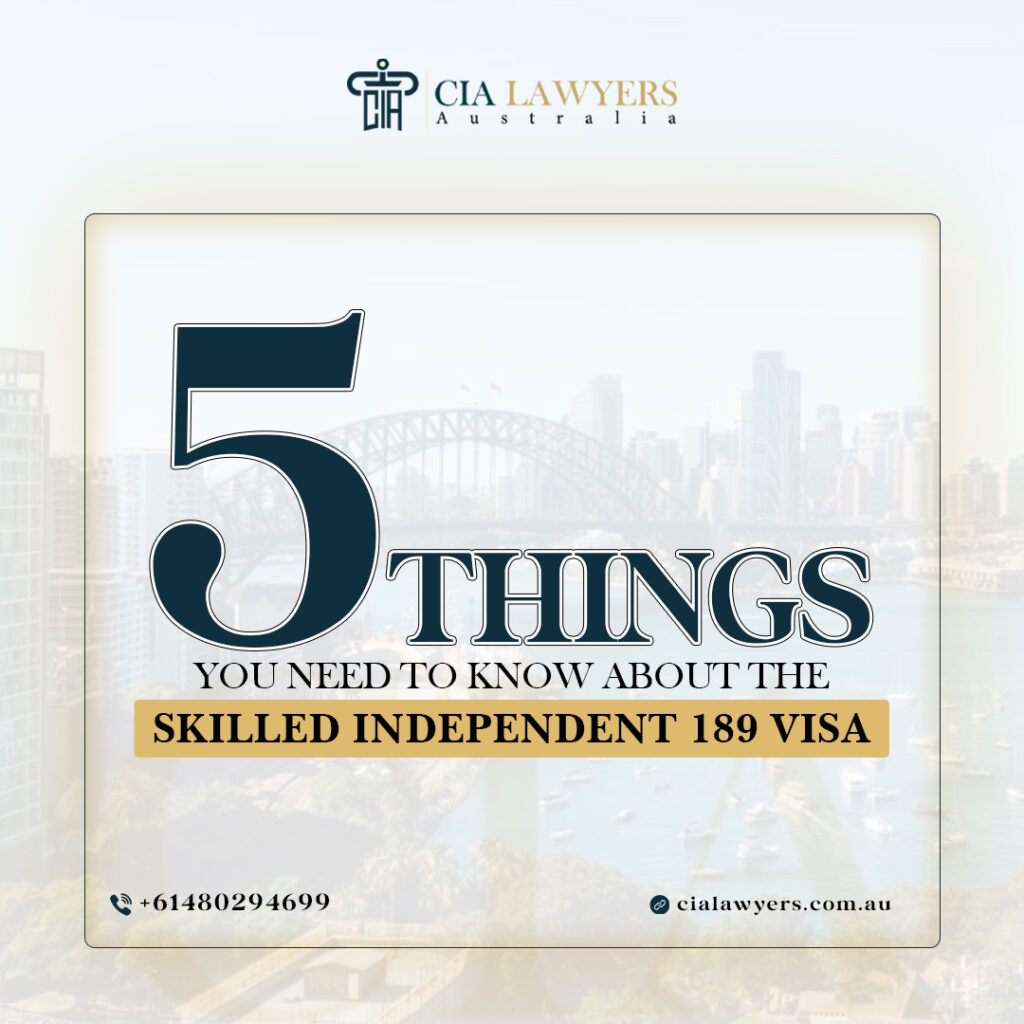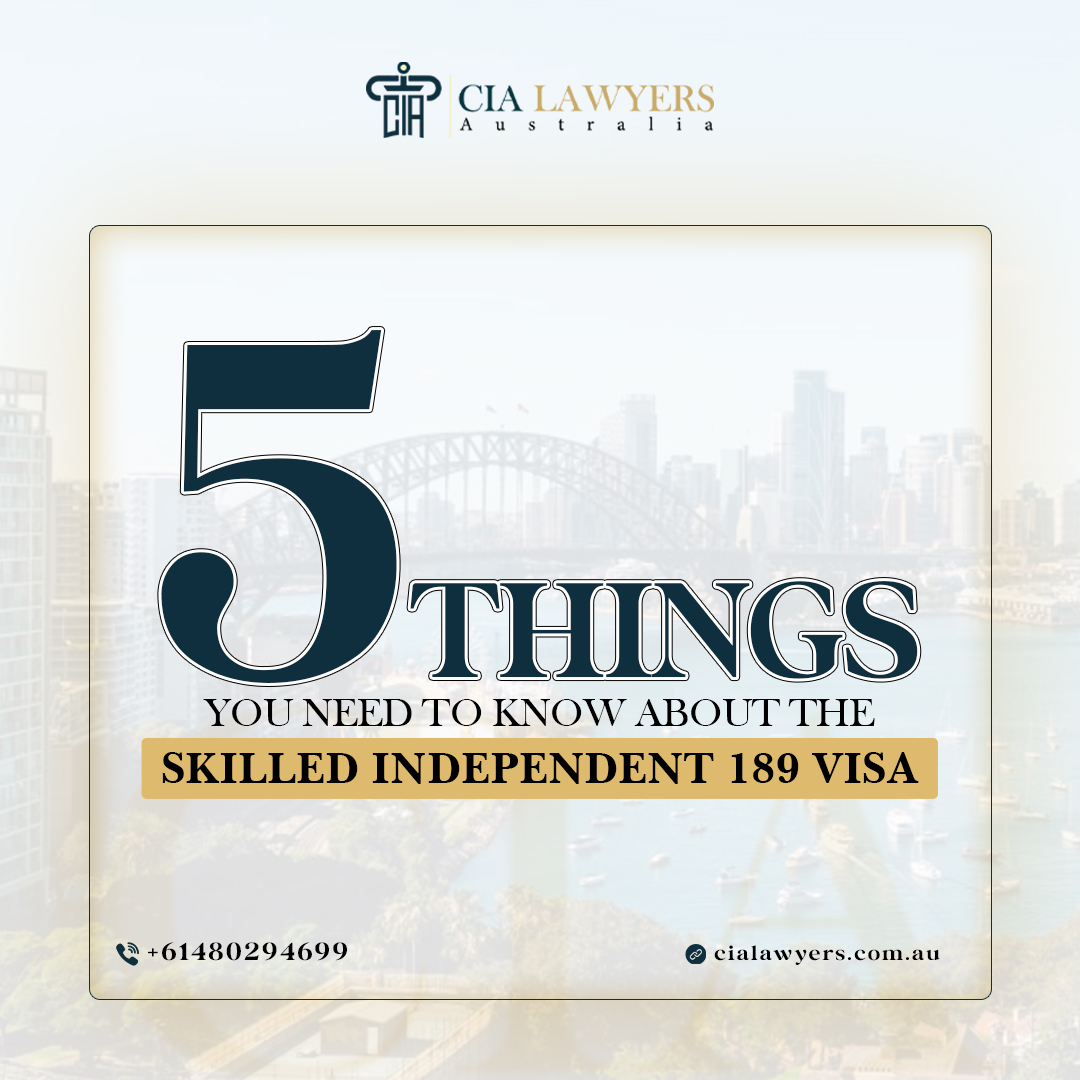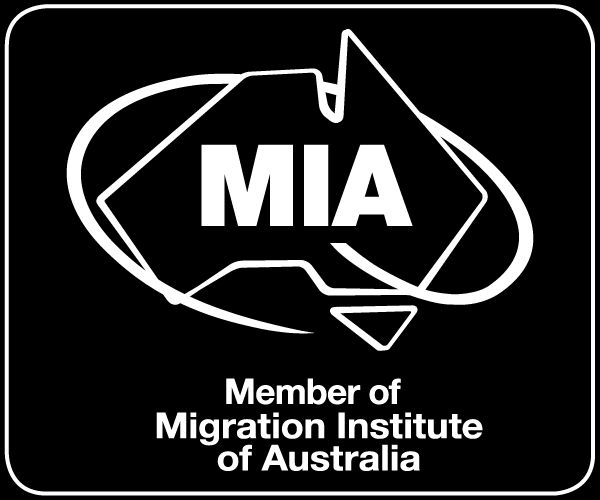The Skilled Independent (subclass 189) visa is a popular choice for skilled workers who want to live and work in Australia. Whether you’re a carpenter, engineer, teacher, nurse, or plumber, this visa might be a great opportunity for you to make Australia your new home. However, there are some key things you should know about the 189 visa before diving in. Let’s break it down.
1. Recent Invitation Round Included a Variety of Occupations
In a recent invitation round, a wide range of occupations received invites, including carpenters, plumbers, mechanical engineers, civil engineers, accountants, early childhood teachers, and registered nurses. This highlights the diversity of skills that Australia needs and welcomes.
So, if you think only tech experts and IT professionals have a chance, think again! Skilled trades and professions in healthcare and education are also highly valued. This is good news for many tradespeople and professionals looking to move to Australia.
2. Lodging an Expression of Interest (EOI) is Essential
One of the crucial steps in the application process for the 189 visa is lodging an Expression of Interest (EOI). This is where you tell the Australian government about your skills, experience, and qualifications. Essentially, it’s like putting your name in the hat and saying, “Hey, Australia, I’m ready!”
The EOI is submitted through SkillSelect, and based on your occupation and points score, you may be invited to apply. Remember, submitting an EOI doesn’t guarantee an invite, but it’s the only way to get noticed.
3. Key Eligibility Criteria: English, Age, and Points Test
To qualify for the 189 visa, there are a few boxes you’ll need to tick. First up, you must have at least competent English. This usually means passing an approved English language test like IELTS or PTE. Next, you need to be under 45 years of age at the time of your invitation.
The big one, though, is the points test. You need a minimum of 65 points to be considered. Points are awarded based on factors like your age, English proficiency, work experience, education, and more. The higher your points, the better your chances of receiving an invitation.
4. Valid Skills Assessment in an Occupation on the Medium to Long-Term List
A valid skills assessment is a must-have to apply for the 189 visa. Your skills assessment is an official document from an approved authority that confirms your qualifications and work experience match what’s needed for your occupation. Think of it as your proof that you’ve got what it takes.
But not every occupation qualifies. Your job needs to be listed on the Medium to Long-Term Strategic Skills List (MLTSSL). This list includes a broad range of skilled professions and trades that Australia needs to fill labour shortages. So, if you’re a carpenter, registered nurse, or engineer, you’re in luck!
5. Invitation Process: Final and Unchangeable
If you receive an invitation, it will be sent to the email linked to the account you used for your EOI. This is why it’s vital to keep your email address up to date. Once you’re invited, your points are locked in, meaning you can’t change your points score after the invite is issued. It’s final.
This is important to keep in mind because your invite depends on your points at the time of invitation, not at the time of EOI submission. So, you need to be sure of your points before you lodge that EOI!

Why Choose the 189 Visa?
One of the major benefits of the Skilled Independent 189 visa is that it’s a permanent residency visa. This means you can live, work, and study anywhere in Australia without restrictions. You also gain access to Medicare and other social benefits, and after a few years, you can apply for Australian citizenship.
Another big plus? You don’t need sponsorship from an employer, state, or family member. So, if you’re keen on independence and have the skills Australia needs, the 189 visa is worth considering.
Tips for a Successful 189 Visa Application
- Get Your Skills Assessed Early: Don’t leave your skills assessment until the last minute. It can take a while, and without it, you can’t lodge an EOI.
- Double-Check Your Points: Before submitting your EOI, make sure your points calculation is accurate. Little things like additional qualifications or extra work experience can boost your points.
- Keep Your EOI Updated: If anything changes, such as gaining a higher qualification or improving your English score, update your EOI immediately.
Common Questions About the 189 Visa
- How often do invitation rounds happen?
The frequency of invitation rounds varies, but they generally occur monthly or quarterly. The number of invitations issued depends on the demand and the Department of Home Affairs’ visa planning levels. - What happens if I don’t get an invite?
If you don’t receive an invitation within the validity period of your EOI, it might be time to review your points or consider alternative visas. Sometimes a few extra points from additional work experience or an improved English score can make all the difference. - Can I include my family members?
Yes, the 189 visa allows you to include eligible family members in your application, such as your partner and dependent children.
Final Thoughts
The Skilled Independent 189 visa is a fantastic opportunity for skilled workers looking for a fresh start in Australia. From tradespeople to teachers, if you’ve got the skills and the points, there’s a good chance Australia is looking for you.
But don’t forget, lodging an EOI is just the beginning. Meeting the key eligibility criteria, getting your skills assessed, and keeping track of your points are all part of the process.
And if you’re not sure where to start or if you’re feeling overwhelmed, it’s always a good idea to chat with an immigration expert. They can help guide you through the ins and outs of the application process and make sure you’ve got everything covered.








